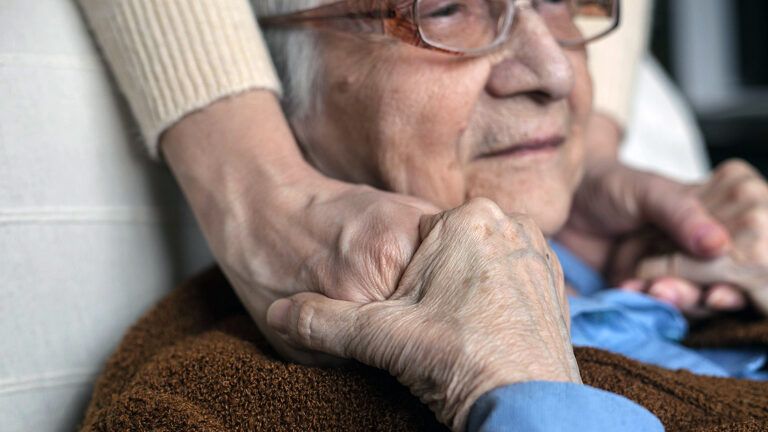“Music can lift us out of depression or move us to tears – it is a remedy, a tonic, orange juice for the ear,” according to the famed physician and author Oliver Sacks. “But for many of my neurological patients, music is even more – it can provide access, even when no medication can, to movement, to speech, to life. For them, music is not a luxury, but a necessity.”
Music’s unique ability to touch the heart and soul of someone who lives with a challenging condition—from Parkinson’s or Alzheimer’s to the after-effects of stroke—has a special resonance at holiday time. Traditional tunes, whether sacred orchestral arrangements or jazzy nods to the season, can trigger warm and soothing feelings and happy memories that reach back to earlier times. So, if you’re wracking your brain to come up with the perfect gift for the loved one you care for, consider setting aside some dedicated times to simply sit together and flood your senses with music.
Music has many powerful benefits. Research has shown that it can:
- Boost brain connectivity University of Utah researchers scanned brain regions of dementia patients while they listened to music versus silence, and found that music activates the brain, causing whole regions to communicate. Music with personal significance to the patients had the greatest impact. “This is objective evidence from brain imaging that shows personally meaningful music is an alternative route for communicating with patients who have Alzheimer’s disease,” said Norman Foster, M.D., director of U of U’s Health’s Center for Alzheimer’s Care and Imaging Research. “Language and visual memory pathways are damaged early as the disease progresses but personalized music programs can activate the brain, especially for patients who are losing contact with their environment.”
- Stimulate emotional memories Neuroscientist Kiminobu Sugaya teamed up with his wife, violinist Ayako Yonetani, to teach a popular course, “Music and the Brain,” at the University of Central Florida. It explored how music impacts brain function and human behavior, including by reducing stress, pain and symptoms of depression and improving cognitive and motor skills, spatial-temporal learning and the brain’s ability to produce neurons. “If you play someone’s favorite music, different parts of the brain light up. That means memories associated with music are emotional memories, which never fade out—even in Alzheimer’s patients,” Sugaya said. “Usually in the late stages, Alzheimer’s patients are unresponsive. But once you put in the headphones that play [their favorite] music, their eyes light up. They start moving and sometimes singing. The effect lasts maybe 10 minutes or so even after you turn off the music.”
- Release soothing chemicals Relaxing with music can trigger the release of brain chemicals that regulate mood, reduce aggression and depression and improve sleep, a study at Miami Veterans Administration Medical Center found. Researchers tested the blood of 20 male patients with Alzheimer’s after they participated in a music therapy program for 30 to 40 minutes five times a week for four weeks. The patients’ melatonin, norepinephrine and epinephrine levels had increased significantly at the end of the four weeks.
- Improve physical and psychological well-being Acclaimed soprano Renée Fleming has helped launch Sound Health, an NIH-Kennedy Center initiative to study the impact of music on health and healing. In addition to hosting performances, scientific workshop and community activities, Sound Health has supported research into the science of music. An aim is to help researchers conduct rigorous music-based interventions for brain disorders of aging. Four years ago, as part of the initiative, Fleming spent two hours in an MRI scanner that tracked her brain activity as she sang. “Even listening to music, or thinking about music, can have physical and psychological effects,” according to an article in the NIH Record. “Interestingly, when Fleming was in the MRI machine, the scans showed her brain was most active not while singing or talking, but while imagining she was singing.”
If your loved one enjoys singing or playing an instrument, and is still able to do so, providing encouragement can be a wonderful gift in itself. If you want to play or listen to music together, try to set aside regular times when you won’t feel rushed and harried. If you need a helping hand, you may want to consider hiring an in-home care aide to sing with your loved one or act as deejay with a special playlist of favorite recorded songs.
Another very special gift would be to schedule sessions with a music therapist who can sing or play especially meaningful tunes from your loved one’s life. Learn more information on how to find a music therapist.





